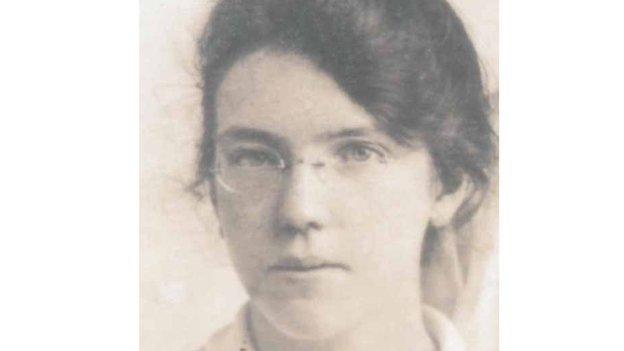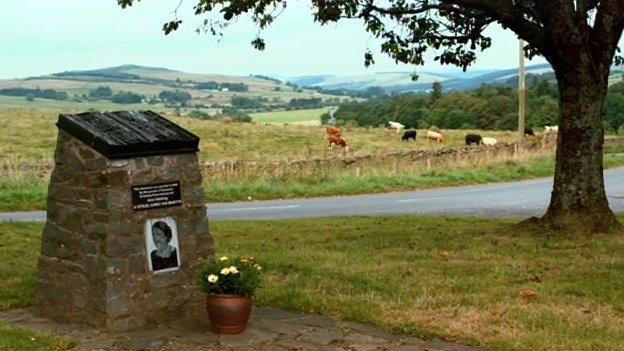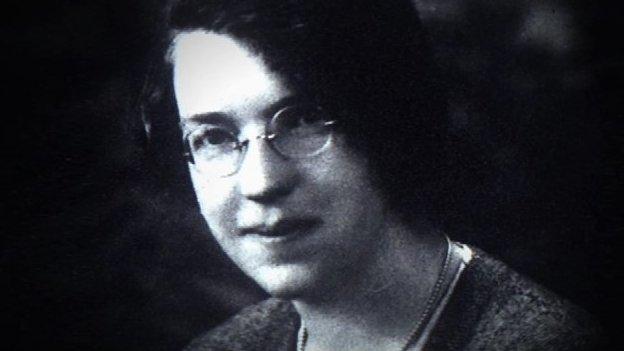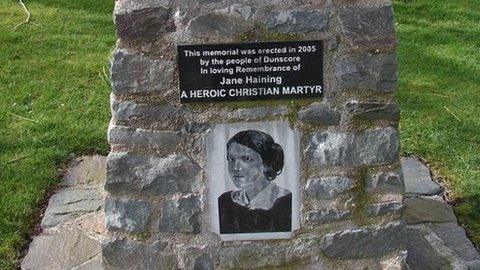Official plaque to recognise Jane Haining in Dunscore
- Published

Jane Haining died at Auschwitz in 1944 with the Jewish children in her charge
A Christian missionary who died at the notorious Auschwitz concentration camp is to be recognised at a church in Dumfries and Galloway.
Jane Haining was killed at the Nazi death camp in 1944 after dedicating her life to working with Jewish children in Budapest.
A plaque in her memory will now be installed in Dunscore Parish Church, close to her birthplace.
It is one of eight Historic Scotland will install across the country.
Each will recognise a different historical group or figure and they will be erected at the home where they lived or a building synonymous with their achievements.
Haining was ordered home from Budapest by the Church of Scotland when the political situation worsened in Europe in 1939.
She refused, insisting that the children's need of her help was greater than ever. She vowed to remain at her post at a school in spite of the serious threats to her safety.
She died at Auschwitz with the orphan children in her care.

There is a memorial to Jane Haining in the village of Dunscore, in Dumfries and Galloway
Others recognised by the Historic Scotland commemorative plaques scheme include:
Henry Bell, Scottish engineer who introduced the first successful passenger steamboat service in Europe.
Sir William Alexander Smith, 1854-1914, founder of the Boys Brigade.
Baroness Florence Horsburgh, 1889-1969, Scottish Conservative Party politician and champion of social welfare issues (especially child welfare).
Sorley Maclean, 1911-1994, one of the most significant Scottish poets of the 20th century (Gaelic poetry).
Hercules Linton, 1837-1900, - Scottish surveyor, designer shipbuilder, antiquarian, & local councillor, - best known as the designer of the Cutty Sark.
The Edinburgh Seven, 1869, the first women to be admitted on a degree programme at any British University, led by Sophia Jex-Blake
Andrew Blain Baird, 1862-1951, first All-Scottish Heavier-than-Air Powered Flight Aviation Pioneer.
Nominations for the scheme are submitted by the public before an independent panel select the final recipients.
Culture Secretary Fiona Hyslop said: "I hope that today's announcement will lead to a far greater recognition of the contribution each of these remarkable people have made to Scottish society and, in many cases, to the wider world."
Martin Ross, policy and projects manager at Historic Scotland said: "In the last four years the number of nominations to the scheme has grown rapidly, and this latest round produced a wide range of potential recipients, from a broad spectrum of society.
"The end result is eight recipients who have undoubtedly contributed significantly to the advancement of their particular field, both in Scotland and further afield. In many cases their legacies continue to make a difference, many years later."
- Published30 November 2014

- Published31 May 2012
